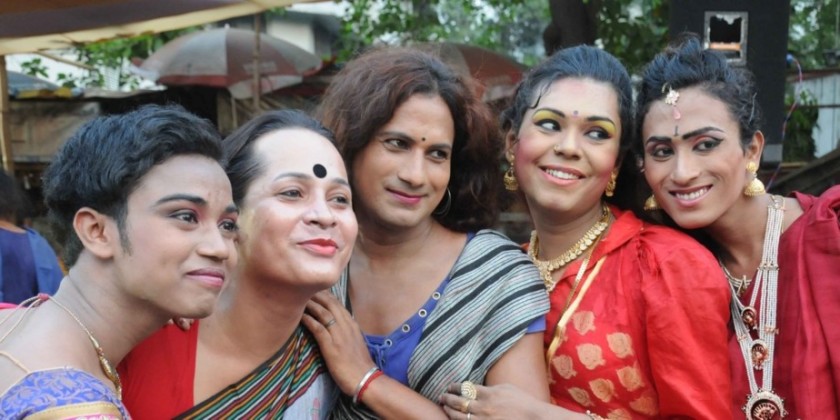The ongoing nationwide lockdown has become a nightmare for all daily wage earners in India and the situation looks even more worrisome for thousands of transgender persons whose only source of income is from begging/dancing on the streets or engaging in prostitution/cross-dressing for ceremonies etc. The Hijra community in India is largely dependent on the streets for its livelihood and the nationwide lockdown has snatched everything away from the already vulnerable group. Lack of access to basic supplies like food and water, no source of income to sustain them through the lockdown and several bills and rents to pay, the transgender community is finding it very difficult to sustain itself.
The Indian Hijra community is known to be one that has embraced people with a wide variety of gender identities and sexual orientations, forming a culturally unique social group. The Hijra community broadly includes male to female transgender persons, people who are inter-sexed, crossdressers and transexuals and the group as a whole has been prey to marginalisation and discrimination.
Over generations, they have occupied a distinct cultural role and this primarily consists of ritual performances in families on occasions such as marriage and child birth. The Hijras perform a special dance and song and in turn ask for money. People willingly pay them on these special occasions because the society considers their blessings important and holy. These days, apart from their traditional roles transgender women or gay men also look at prostitution as an alternative source of earning. Another source of income that many transgender/gay men are looking at in rural India is what is called ‘Launda-Naach’ wherein they wear feminine attires and give performances with sexual innuendoes.
The lockdown has implied that the transgender community has lost all avenues of income and this has made even basic supplies like food and medicines a distant dream. Historically, the members of the Hijra community have little or no familial or social support and in most cases they have been boycotted even by their own parents. Thus being able to finically fend for themselves becomes a very important factor for the members of the community, because it lends them immense social security and the ability to survive even while there is an absence of external support structures.
So while the country witnesses a complete lockdown and all sources of income have been blocked for the community, they have become even more ‘socially distanced’ from the mainstream world. The maintenance of ‘social distance’ is being seen as an important tool to fight and protect oneself against the novel coronavirus but for the transgender community, it is a value that has been imbibed by them for generations. The mainstream society has always maintained a ‘social’ as well as ‘physical’ distance from the community for generations. Had the times been ‘normal’, the Hijra community wouldn’t have been bothered with the societal indifference because it has been feeling it for generations but in these helpless times, as the coronavirus claims more and more lives everyday, the distance between the mainstream society and the Hijra community is growing everyday. State neglect and institutional apathy have made the community even more marginalised and has pushed them to the fringes of exploitation and indignity. The public healthcare system, the educational infrastructure and mainstream sources of employment have all been made inaccessible and unattainable for the community.
The Central as well as the state governments may have announced many packages to help out the disadvantaged sections of the population but the transgender community may still continue to remain disadvantaged, because of inaccessibility and discrimination.
What adds to the problem is a lack of enumeration and data on the transgender community, so how will there be an estimation of whether or not such ‘relief packages’ reach out to the transgender community too? A large section of transgender people lack state issued identity cards or live without any documentation at all. Without being enumerated by the state or being recognised by it, it is but quite natural that the community will continue to excluded from all sorts of welfare programs by the state.
While the country experiencing an extended lockdown due to the coronavirus, the transgender community continues to be pushed to the perils of discrimination, phobia and stigma in healthcare along with a lack of adequate documentation or identity proof to avail benefits.
India presently has around 4.8 lakh transgender people, as per the 2011 census data, of whom only 10% of voter ID. The lack of food supplies, medicines and money have made the lockdown nothing but a nightmare for the transgender community, the threat of catching coronavirus infection has only amplified their woes.














